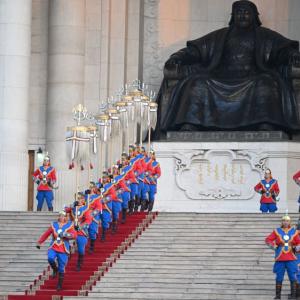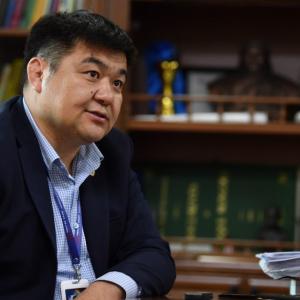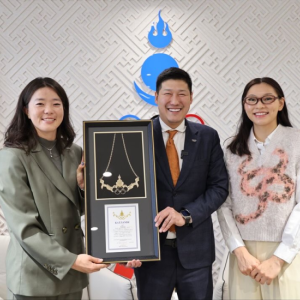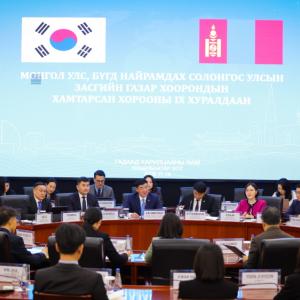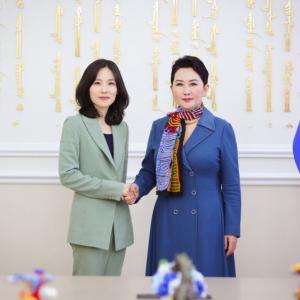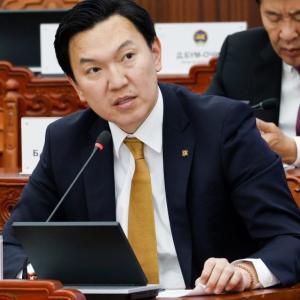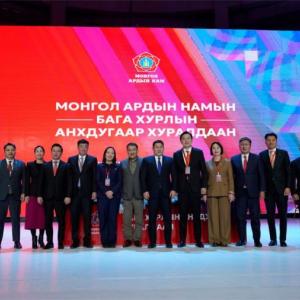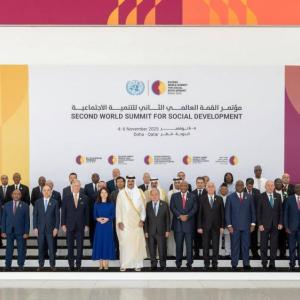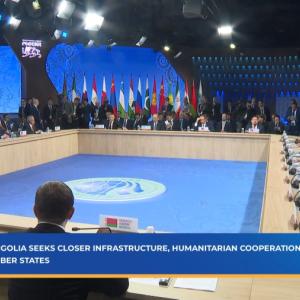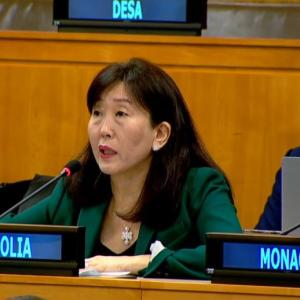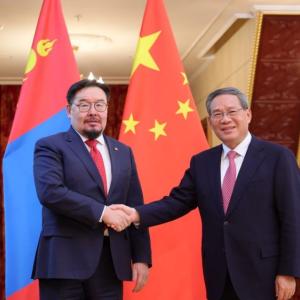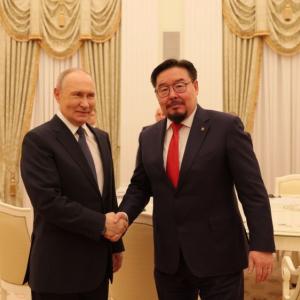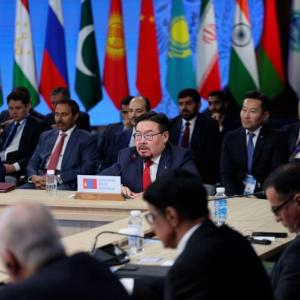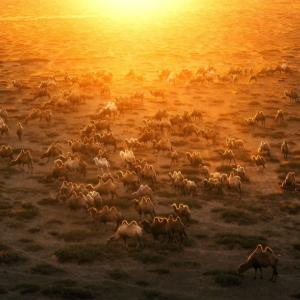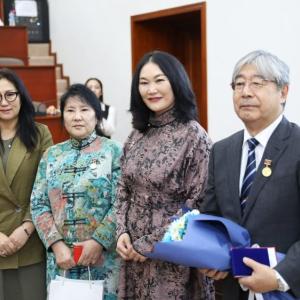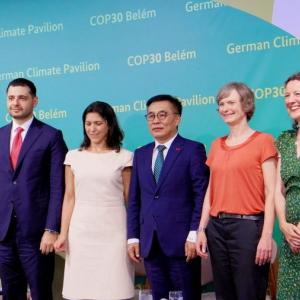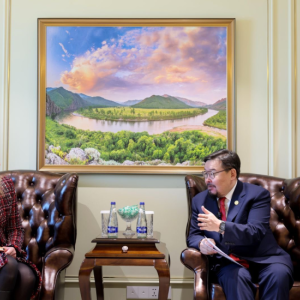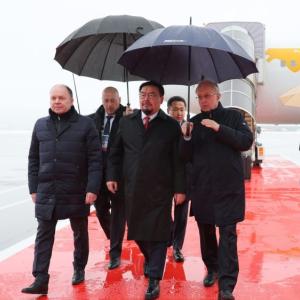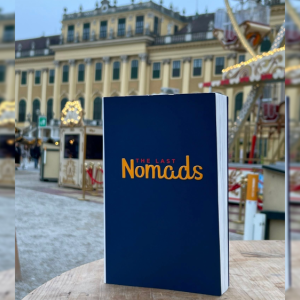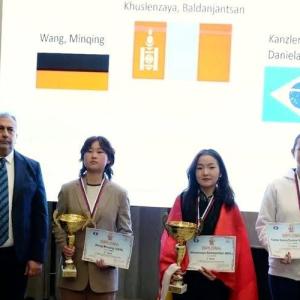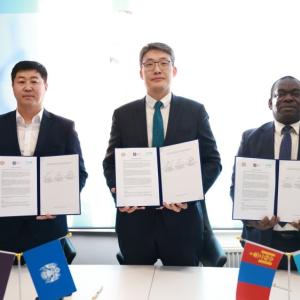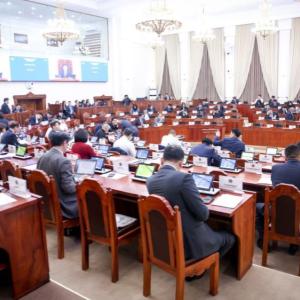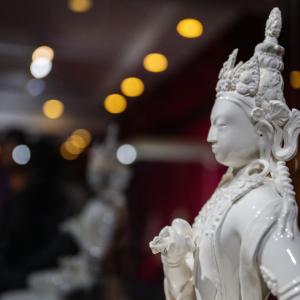J. Lkhagvademchig: The Relations between Mongolia and the Kingdom of Bhutan Could Be Expanded onto Buddhism and Tourism
Politics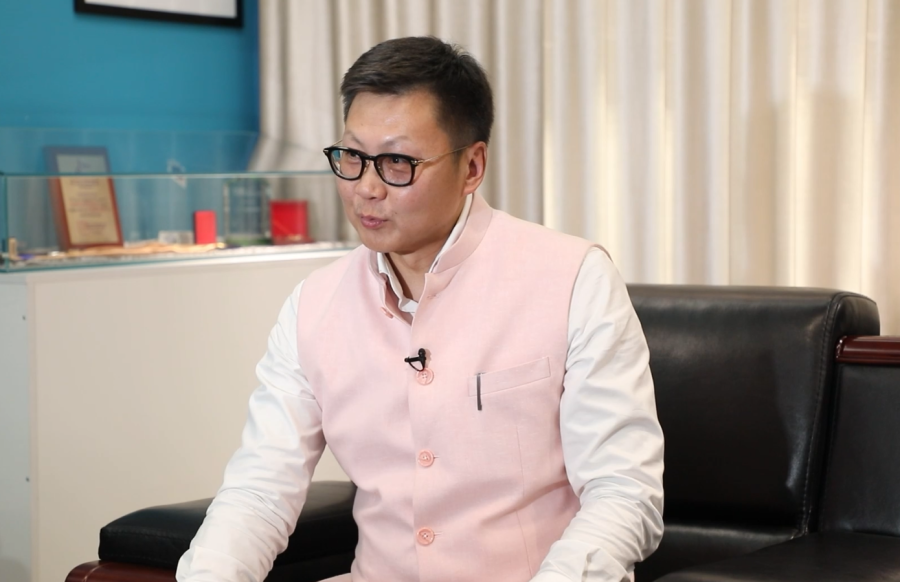
Ulaanbaatar, July 8, 2024 /MONTSAME/. We interviewed Dr. J Lkhagvademchig, a lecturer at the Anthropology and Archeology Department of the School of Arts and Sciences of the National University of Mongolia.
-In anticipation of the State Visit of
the King of Bhutan His Majesty Jigme Khesar Namgyel Wangchuck to Mongolia, Mongolians have
been eagerly sharing information and impressions on the Kingdom of Bhutan and Bhutanese people, sharing
positive. What would you like to share about
the Kingdom of Bhutan?
-I think we should begin
with the name “Bhutan.” The Bhutanese name for Bhutan, Druk Yul, means “Land of
the Thunder Dragon”, likening the sound of the howling snowstorms coming from
the Himalayan peaks with the roar of a dragon. The population of the country is
over 700 thousand.
The Kingdom of Bhutan is a
landlocked country surrounded by the People’s Republic of China and the
Republic of India. Having adopted its Constitution in 2008, the Kingdom of
Bhutan is a constitutional monarchy.
The Constitution of the
Kingdom of Bhutan states that the Kingdom of Bhutan will have political parties
and parliamentary governance. But the people of Bhutan asked, “Why should we have
political parties when we have the King?” However, the King of Bhutan addressed
this concern with a statement: “Bhutan must have a parliament and political
parties.” Thus, Bhutan had two parties: the Bhutanese People’s Democratic Party
and the All People’s Party. The Bhutanese people did not initiate to establish
any political party. So, with the Decree of the King of Bhutan, the Kingdom of
Bhutan got to have a parliamentary system and two political parties. Ethnically,
Tibetans (with a complexion similar to Mongolians) make up 50 percent, Nepalese
account for 35 percent, and the rest are indigenous peoples. Bhutan uses the Tibetan
writing system though Bhutanese people speak Dzongkha, which is intelligible
for people who speak Tibetan.
The Vajrayana practice of
Buddhism spread into Bhutan, Tibet, Mongolia, and Mongol origin nations. The
majority of Bhutanese people are Buddhists and regard Buddhism as the state
religion.
-The Bhutanese initiated the Gross Happiness Index in
1975. However, in the United Nations Report Finland ranks as the happiest
country in the world. Why the Bhutanese considered it significant to have the
Happiness Index?
The concept of development
emerged after the end of the II World War. At first, we saw the development of
a country, measured in economic indicators such as Gross Domestic Product. The
Kingdom of Bhutan isolated itself from the outside world until the 1950’s. It
established a cooperation agreement with the Republic of India in 1949.
The 4th King of Bhutan His
Majesty Jigme Singye Wangchuck decided that Bhutan should open up to the
outside world to develop, but the King believed the development based on
economy like most of the countries in Asia was incompatible with Buddhism,
their culture, tradition, and national character. Therefore, the “Gross National
Happiness”, a policy that fits more to their national character was developed.
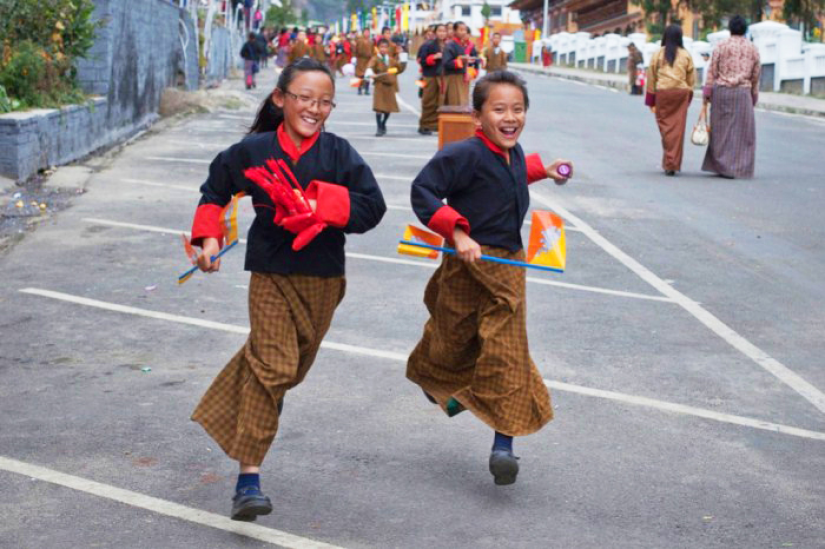
The meaning of the term in
the Dzongkha language would be “Gathing the kindles of the joys and happiness
of the people.” This was not adequately translatable to the English language. So,
it was termed “Gross National Happiness”, starting 1970s. The 4th King of
Bhutan stated that this term is the roadmap of the country’s development. In recent
years, this political policy of Bhutan has become its foreign policy. Bhutan’s
territory and population are small. Therefore, it is Bhutan’s image in international
relations to be “The Happiest Nation”.
As the Kingdom of Bhutan has
a monarch, it fosters good relations with other monarchies. Namely, the King of
Bhutan paid a State Visit to Japan twice. Bhutan has good relations with the United Kingdom of Great Britain and Northern Ireland. Bhutan has created an “image” of
an independent
country that preserves the Vajrayana Buddhist tradition in Asia and is implementing a policy of
interacting with Asian countries through Buddhism.
How
is "Gross National Happiness" measured?
-Well-maintained
governance and economy, and the preservation of environment, culture, and
tradition are the four main pillars for human happiness, states the
Constitution and Foreign Policy. Additionally, issues related to health,
education, and societal development have been prioritized and categorized into
nine areas.
One
interesting indicator in measuring happiness is the index of how many hours a
person works and sleeps. If an individual sleeps less than 8 hours, the
happiness index decreases.
What
methods are used to determine a person's sleeping hours?
-This
is a very interesting question. Research typically uses two methods: numerical
data and surveys. I believe the survey method is used to determine one's
sleeping hours.
Mongolia
and Bhutan established diplomatic relations in 2012. How were the relations
before establishing diplomatic relations?
-Bhutan
became a member of the United Nations in 1971. Before establishing diplomatic
relations, our two countries had interactions during the Mongolian People's
Republic (MPR). Prominent figures such as the Head of Mongolian Buddhists
Gombojav and others from the MPR established the international organization
called the Asian Buddhist Conference for Peace (ABCP). When the 5th General
Assembly of the ABCP was held in Ulaanbaatar in 1979, representatives from
Bhutan came to Mongolia for the first time.
I
think this was a continuation of Mongolia's search for a third neighbor, which
began in 1911. At that time, it could be said that Mongolians pursued a third
neighbor policy through Buddhism.
The
6th assembly of the Asian Buddhist Conference for Peace was held in Ulaanbaatar
in 1982, with also two Bhutanese representatives participating. The Supreme
Head of Mongolian Buddhists, Most Venerable Khamba Lama of Gandantegchinlen,
Gaadan, visited Bhutan in 1985 to attend the international conference.
Additionally, Bhutan's representative, Tsani Lopon, visited Mongolia in 1986.
Before establishing diplomatic relations, our two countries maintained
relations through Buddhism and the Asian Buddhist Conference for Peace. I
believe in the future Mongolia will continue to expand its relations with
Bhutan through Buddhism and tourism.
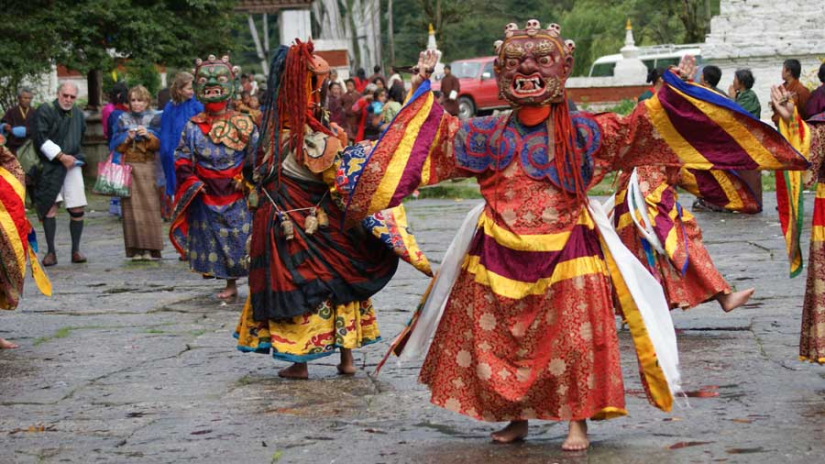
- As you mentioned earlier, His Majesty the King of
Bhutan maintains good relations with other monarchies. In what way is
the upcoming state visit of the King of Bhutan to Mongolia remarkable?
- It is indeed noteworthy that the King of Bhutan will
be paying a State Visit to Mongolia, despite it not being a monarchy.
Previously, His Majesty also visited Singapore, which, like Mongolia, is not a
monarchy. This upcoming State Visit marks the first visit of the King of Bhutan
to Mongolia. As for Bhutan, it is clear that the country aims at intensifying
relations with Mongolia. For Mongolia, I think that foreign policy steps will
be taken not only towards Bhutan, but also Southeast Asia.
- Bhutan is an agricultural country with a small
population. There is information that the number of tourists visiting Bhutan
equals half of its population. Why does this country adhere to strict policies
in the tourism sector?
- According to the articles addressing this issue, it
is considered that "welcoming many foreign tourists is not in line with
its culture and civilization." Therefore, the country restricts the number
of foreign tourists it receives. A daily tax of USD 200 is imposed, attracting
relatively wealthy tourists to visit. Additionally, the country has implemented
limits on the number of tourists it accepts each day. I'm unsure of how these
policies may have changed today.
When I was in India, scholars have told that due to
Bhutan's lack of developed industrial sectors beyond tourism, many young people
prefer to leave for countries like Australia rather than remain in their
homeland. Perhaps, Bhutan is implementing open policies aimed at retaining its
youth.
- How has Bhutan determined its
future development trend?
- The Gross National Happiness Index is a development
trend reflected in Bhutan's Constitution and foreign policy, initially declared
by the Fourth King. However, the current Fifth King, born in 1980, is
discussing a different approach. His Majesty speaks of "Valuable
Development," stating, "While we remain committed to the Gross
National Happiness principle, the methods of its implementation may
evolve." With young people increasingly connected to the world through the
Internet, the new generation seeks different priorities. So, the young King and
the new generation of Bhutan may shape policies to develop their country in
alternative ways.
- Why did the father of this King
abdicate the throne in his 40s, passing it to his son?
- It can be described as, “The generation is changing.
My reign ends here. Now Bhutan will be governed by young people and a new
generation.”

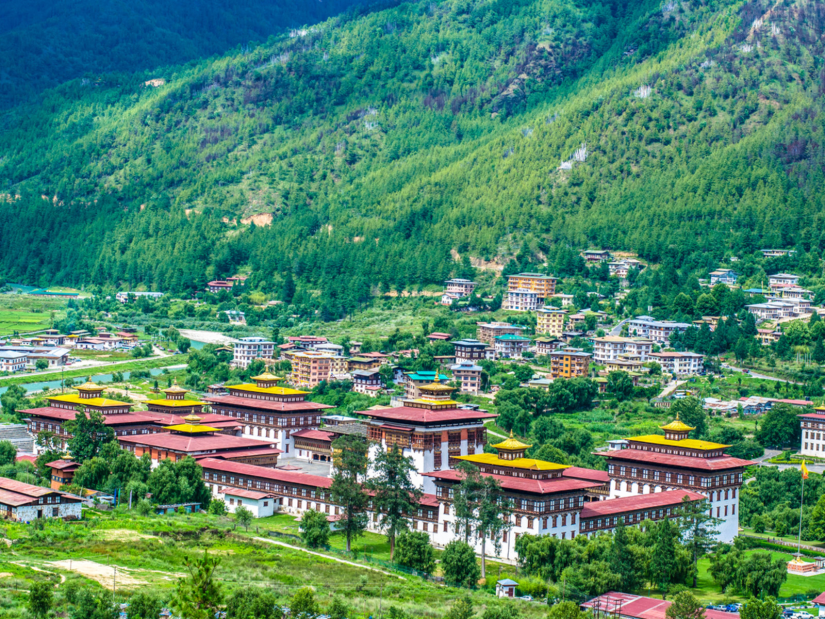
 Ulaanbaatar
Ulaanbaatar





